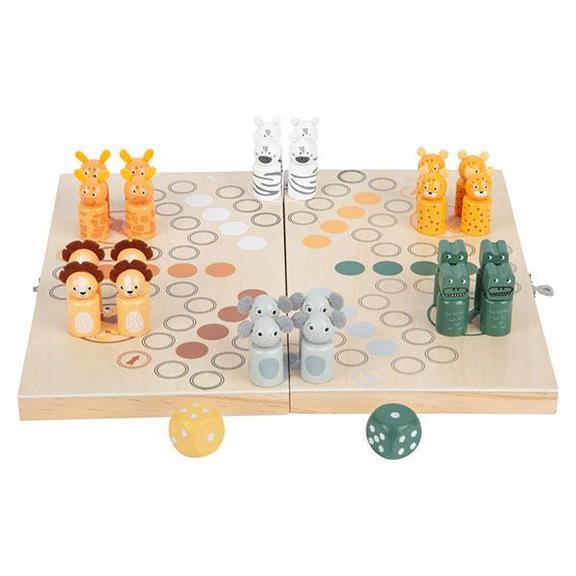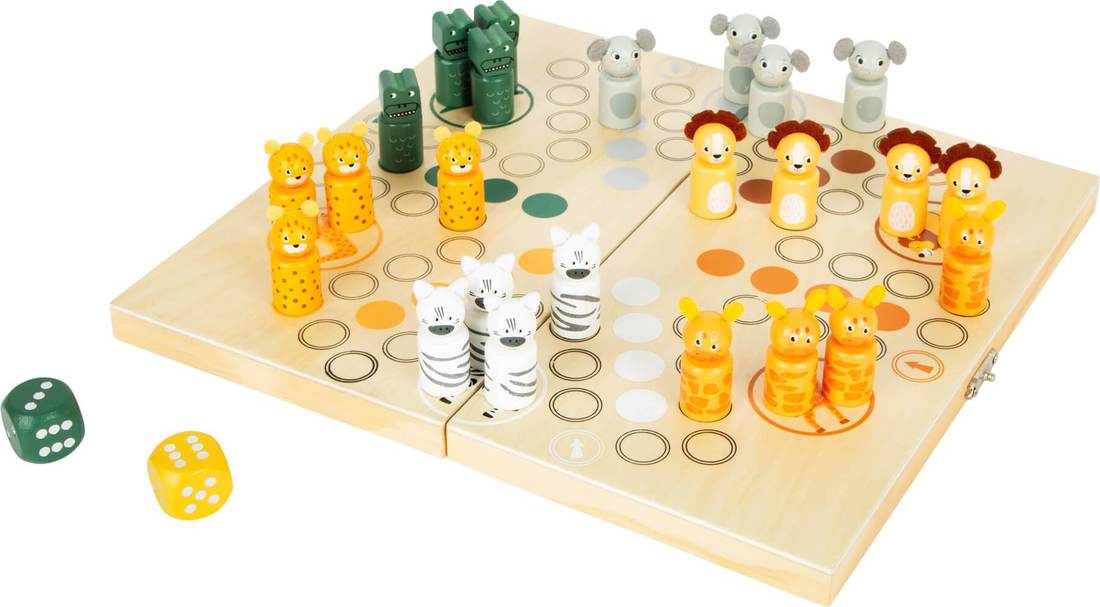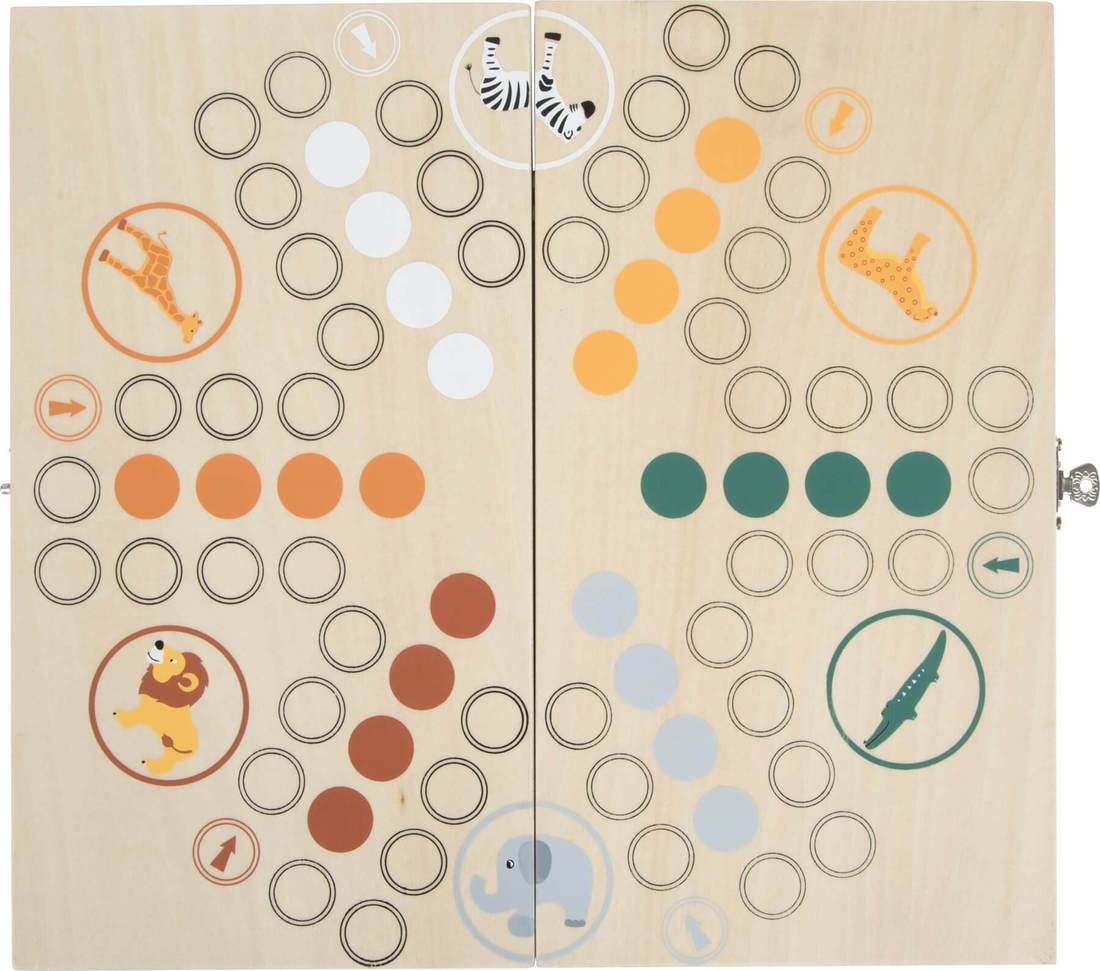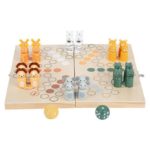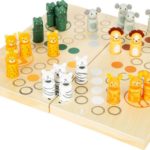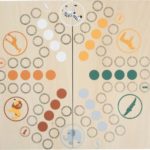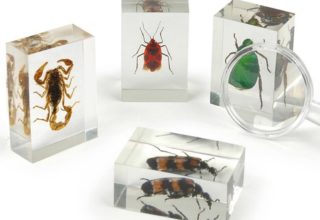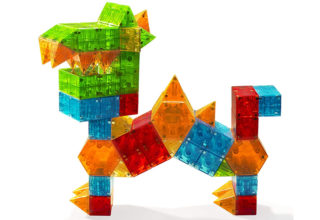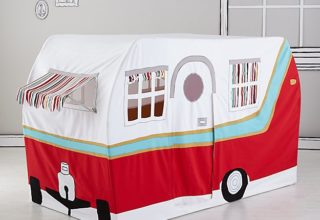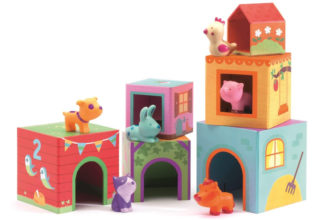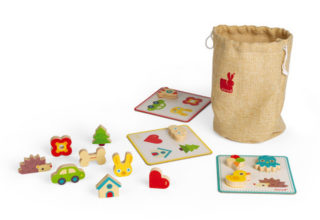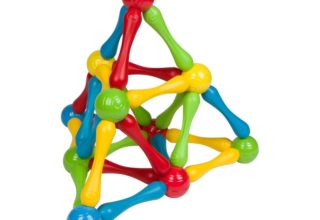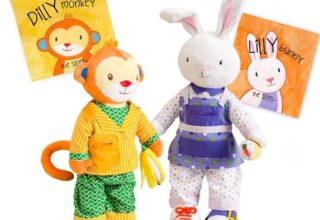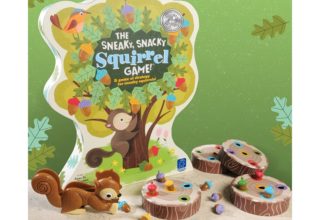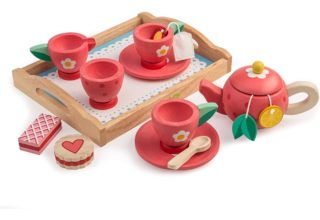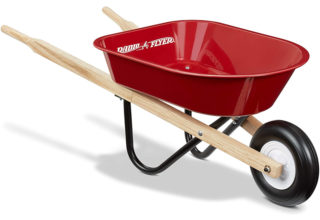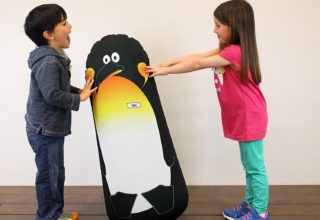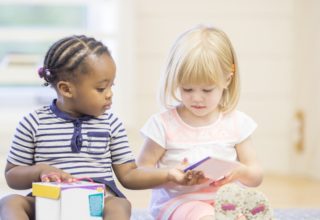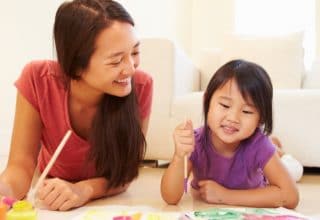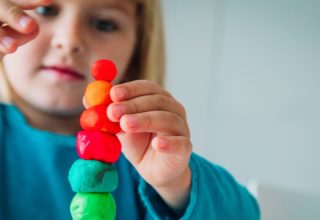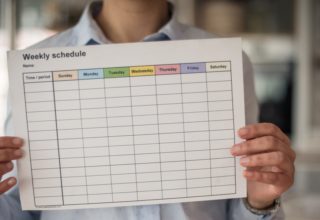A sweet take on a classic game. The novel figurines (felt ears! felt manes!) amp things up. A great family game that encourages taking turns, learning to count and 1:1 correspondence. Ideal gift for siblings.
It’s impossible to stop gawking! Use the inquiry approach with this intro to science. Works well with The Big Book of...
Good old-fashioned fun and cheer. These delightful stickers are brilliant for adding a splash of sunshine + happy to anything...
Next-level Magna-Tiles – in little cubes! Strengthen visual-spatial skills and hand muscles, both critical for early handwriting. Building with magnetic...
Road trip adventures from the comfort of home. Clever patchwork and embroidered details (like awning and curtains) bring play to...
Beyond standard blocks. This hideout version builds reasoning and motor planning skills. Versatile for teaching language development concepts like directional...
A clever take on the conventional memory game. Players use their sense of touch and fine motor skills to manipulate...
An essential for any STEAM curriculum. But these have an undeniable coolness factor. P.S. – STEAM = Science, technology, engineering, arts,...
Master everyday skills with these clever stuffies. Strengthens fine motor skills with real-life finicky accessories – buttons, zippers, laces, buckles,...
Strategy + socialization + fine motor skills. Great for developing pre-writing and pre-math skills.
Spark conversation and make sense of the world. Practice social skills over a cup of tea. Sure to warm any...
Always a hit in play yards + schools! From deciding what to put inside, how to lift and walk, problem-solving...
For all those wiggles, tears and tantrums. Or find your zen. Lots more useful tools here.
Conflict is natural for preschoolers who are just learning about peers and group settings – it is expected, healthy and...
A simple tip sheet for how to praise your child. Something more than “Good job” or just commenting on process and...
The benefits of mindfulness and how it can help your child thrive. How to naturally and authentically infuse mindfulness into...
Your go-to list of curated learning projects, activities and games that you can do at home to support your child’s...
As parents and teachers of young children, we encounter ‘power play’ in a variety of ways – some children like...
Acknowledge and promote positive behavior….*Plinkit* with a Marble Jar! You’ll be amazed at the twinkle in your child’s eye each...
While we may agree that it is important to speak about issues of race and racism, these layered and personal...
How to structure the day at home with your child, specifically extended time periods at home. Smart tips and a...
Learning to write is a hallmark in a child’s education journey. It empowers them to express themselves and their talents....
Try having ‘Family Agreements’ instead of having ‘rules’. Family Agreements can be powerful yet simple tools for encouraging baseline behavioral...
A classroom favorite for cultivating empathy, kindness, community membership and awareness of others. What’s a real superhero? Someone who helps...
We’re often asked, “How do I know if my child needs speech therapy?” First, listen to your instincts. If you...
